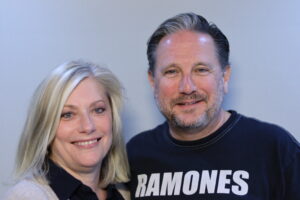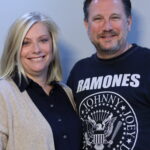Description
Husband and wife Paul Inman (55) and Amy Inman (54) tell the story of a health crisis that Paul experienced in 1997.Subject Log / Time Code
Paul Inman (PI) talks about working in Kansas City in 1997 when he got sick.
PI remembers deciding to go to the hospital for what he thought was acid reflux.
PI remembers the doctors telling him that he was having a heart attack.
Amy Inman (AI) describes the moments before the doctors took PI to the lab.
PI remembers getting rolled back to the ICU.
PI talks about a heart specialist telling him he had pericarditis.
AI and PI reflect on this health crisis being a pivotal point in their lives and marriage.
AI and PI talk about the changes they've made in their lives.
Participants
- Amy Inman
- Paul Inman




